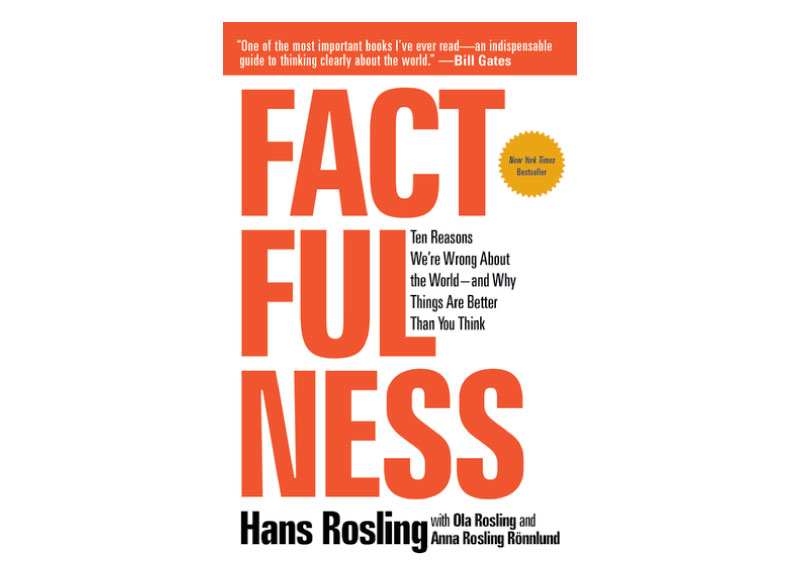
I have been reading a book called Factfulness, with a subtitle that says Ten Reasons We’re Wrong About the World – and Why Things Are Better Than You Think’. Bill Gates supposedly called it one of the most important books he has ever read. The book begins by asking the reader to answer a few questions such as “In the last twenty years, the majority of the world population living in extreme poverty has: A) Almost doubled B) Remained the same C) Almost Halved.” By the way, only 5% got this right. The correct answer is C. The number of people worldwide who live in extreme poverty has been halved in the last twenty years – yet most people think the opposite. The book is loaded with interesting facts, but even more importantly, it explains why people tend to focus on the negative rather than the truth. Factfulness is an easy read, and in this age where every headline is designed to shock and scare you, it’s a refreshing look at the world as it really is.
There are two types of people in the world: those who add stress and those who subtract stress. Simon Sinek says...if you must choose between loyalty and productivity, always go with loyalty.
Terms like “great, genius,” and “world-class” are overused, perhaps because they mean something different to everyone. Greatness is subjective. Some might say you must be great just to be employed in the film business or to play professional sports, but I don’t think Will Smith or LeBron James think that way. The concept of being great also requires context. You could be a great high school athlete but only an average college player.
The most valuable skill in today's economy is storytelling. O'Leary wasn't the first to say that. Ten years ago, I remember asking Bill Clinton what made him a great speaker, and he said he was a good speaker because he is a good storyteller. As our economy evolves, the ability to communicate will become even more valuable.
